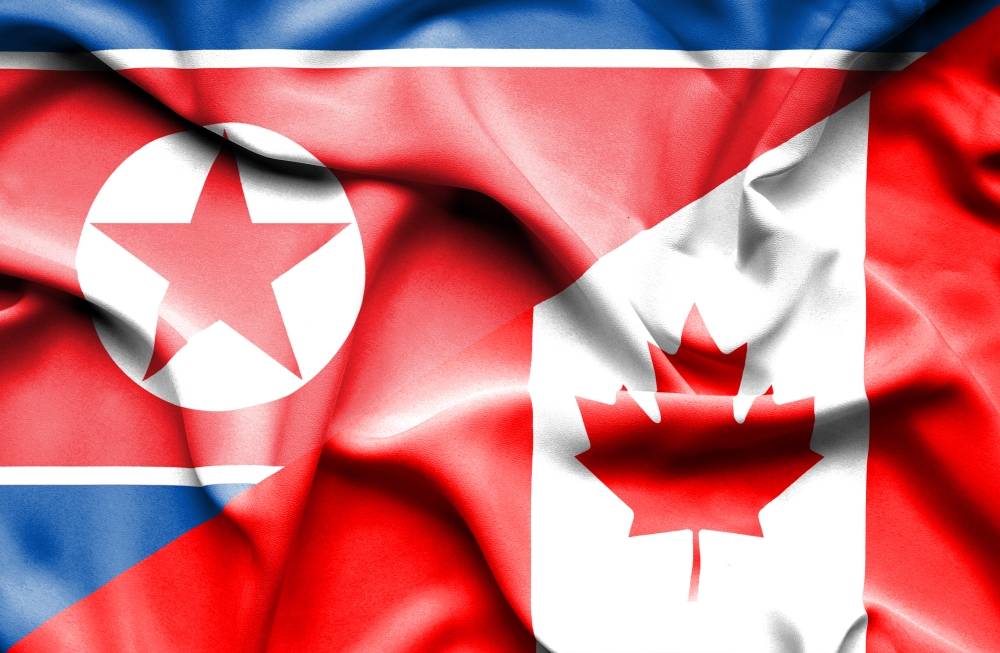Canada - Korea denuclearisation talks
January 10, 2019 | Expert Insights

Canada held confidential talks with North Korea to convince the latter to respect human rights and abandon its quest for nuclear weapons.
Background
Canada–North Korea relations refer to the relations between Canada and the Democratic People's Republic of Korea (commonly known as North Korea). Canada recognized the Republic of Korea in 1949 and the Democratic People’s Republic of Korea in 2000. Although diplomatic relations between the two countries were established in February 2001, there have been no official embassies built in the two nations.
On 25 May 2010, Canada suspended full diplomatic relations with North Korea over its alleged role in the sinking of ROKS Cheonan and replaced it by a Controlled Engagement Policy limiting official bilateral contact to subjects concerning: (1) regional security concerns; (2) the human rights and humanitarian situation in North Korea; (3) inter-Korean relations; and (4) consular issues.
In August 2011, the Government of Canada imposed autonomous economic sanctions against North Korea under the Special Economic Measures Act (SEMA) for aggressive actions which represented a grave breach of international peace and security. The SEMA sanctions include an import and export ban; a ban on all new investment in North Korea; and, a ban on the provision of financial services to North Korea and to persons in North Korea. Some exceptions are made for the provision of humanitarian goods. These sanctions are in addition to those imposed by the UN Security Council.
Analysis
A North Korean delegation visited the Canadian capital of Ottawa for confidential talks. The negotiations with the North Koreans lasted for two days, and the Canadians insisted on advancing the denuclearization process, also urging them to pay attention to "serious human rights problems" in North Korea.
"While the recent and ongoing dialogue between the Koreas is encouraging, we remain concerned by the lack of concrete actions by North Korea towards de-nuclearization," Canadian Foreign Ministry spokesman Guillaume Berube said. He said that the meeting was not indicative of any changes in the status of Canadian diplomatic relations with North Korea. "This is not part of an overall effort to regularize relations."
The visit of the North Koreans to Ottawa was negotiated with the allies of Canada, including the United States. He noted, "We are always talking to close partners and allies about our unified approach in terms of applying pressure on North Korea," Berube said. "There are regular exchanges among partners, about how we can work in collaboration, particularly in relation to denuclearisation. It is a global security concern. It would put us on a par with our like-minded states, and that would allow us to have a first-hand assessment of a situation in North Korea". It would also "put Canada back into the game in terms of discussions among states" on North Korea, he added.
In 2010, Canada tightened sanctions on North Korea and put new restrictions on bilateral contacts after a torpedo attack on a South Korean warship killed 46 sailors. A team of international investigators concluded that the torpedo came from a North Korean submarine. Canada's limited engagement policy states that Ottawa will deal with Pyongyang only on matters of regional security, human rights, humanitarian concerns, inter-Korean relations and consular issues.
James Trottier, a former diplomat who led four Canadian missions to North Korea and helped negotiate the release of a Canadian pastor imprisoned in Korea said that he would like to see Canada take further steps to re-establish traditional diplomatic ties with the regime. "Right now, we have limited access and limited information," Trottier said. He noted that Canada was at a disadvantage at that summit because, unlike some other western nations, Ottawa has neither a diplomatic presence in Pyongyang nor a representative who visits North Korea regularly. He said, "If Canada had first-hand information, people would welcome Canada, I would say, and Canadian policymakers more at the table than they do right now."
Assessment
Our assessment is that Canada intends to co-host with the United States, discussions with North Korea to mitigate threats posed by its nuclear weapons to international peace. We believe that since Canada is not directly involved in the crisis with North Korea (unlike the US, Japan, South Korea and China) it is able to provide a non-partisan platform to settle the dispute.








Comments